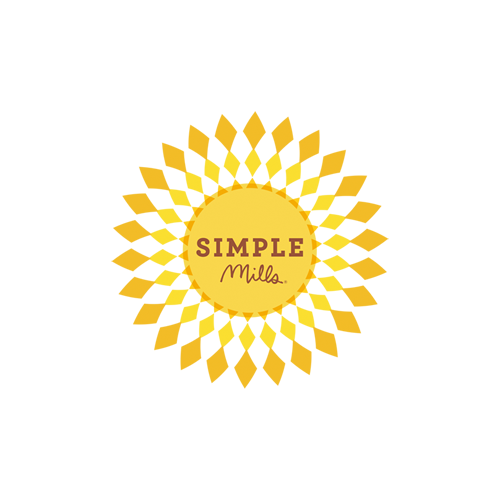Buyouts Magazine’s “Large Market Deal of the Year”
New York – April 14, 2010 – From Buyouts Yearbook 2010 – Who said sponsor-to-sponsor deals are dead? Vestar Capital Partners earned a welcome Christmas present Dec. 23 when it sold Birds Eye Foods, a maker and marketer of processed foods, to Pinnacle Foods Group LLC, a portfolio company of The Blackstone Group, for $1.3 billion.
The deal generated 4.4x the New York-based buyout shop’s invested capital and an internal rate of return of more than 30 percent. The exit came after a seven-year holding period that demonstrated Vestar Capital’s ability to execute complicated deals and re-position lagging brands. Under Vestar Capital’s guidance the company slashed under-performing businesses, sold factories and other assets the company didn’t need, and then invested heavily in marketing and research and development to guide Birds Eye into new businesses.
Vestar Capital bought Birds Eye in August 2002 for $175 million cash from Pro-Fac Cooperative Inc., a grower’s cooperative, in a deal with a total enterprise value of $735 million, or 5.9x the company’s EBITDA over the previous 12 months. Equity for the deal came out of the firm’s fourth fund, a $2.5 billion pool of capital.
Executing the deal required some assurances from Vestar Capital that Pro-Fac, which became a minority investor, would still have a place to sell its vegetables. The firm agreed to a 10-year supply agreement, which gave ProFac the stability it needed to go forward. “That was very important in getting the deal done,” Brian Ratzan, a Vestar Capital managing director in charge of the firm’s consumer group, told Buyouts.
Proceeds from the investment paid down more than $140 million of debt, reducing leverage to 4.5x EBITDA from more than 6x.
At the time of the investment, Birds Eye employed 4,000 people in 26 production facilities. The company’s brand was fading and it was losing market share, with Birds Eye comprising 17 percent of the U.S. frozen vegetable category.
Vestar Capital’s investment spanned two stages, with the firm spending most of the first few years right-sizing the business and refocusing on Birds Eye’s core brand. Birds Eye sold plants in Massachusetts and Mexico, as well as lower-margin, under-performing businesses,. including a Shortsville, N.Y.-based sauerkraut business.
The firm also sold its Rochester, N.Y.-based canned vegetable businesses and, most importantly, its private-label frozen vegetable business, to the Allen Canning Company, a large packaged foods and meats company. The private-label market for frozen vegetables was too crowded, Ratzan said, with 15 to 20 producers, which led to unattractive competitive dynamics: low profit margins and low return on invested capital. The company had $100 million of working capital tied up in the private label business, which only generated $1 million to $2 million of EBITDA, Ratzan said. After selling its private-label business, in 2006, Birds Eye reduced its stock-keeping units to 480 from 4,500.
In 2005, the firm hired Neil Harrison, the former CEO of Heinz North America, to lead investments in marketing and advertising and new product development. This marked the second phase of Vestar Capital’s investment, when it sought to expand the company. Under Harrison, the company’s consumer marketing spending increased to $53.9 million in 2009, up from $31.1 million in 2005, or approximately 15 percent per year.
In January 2006, the company launched its “Steamfresh” technology, which allowed consumers to steam Birds Eye vegetables and meals in microwave ovens with a specially designed bag. The innovation was a boon to the company’s steamed vegetable category, which grew to generate $580 million for its retail grocery channel. The firm also launched a total of 23 new frozen vegetable products and 16 new complete bagged meals products, and by the end of 2009, these new products generated 15.4 percent of net sales for the frozen food group.
Vestar Capital professionals helped transform the company from a commodity vegetable producer to a leader in branded foods and meals, including Birds Eye Steamfresh, Birds Eye Voila!, and Nalley and Brooks chili and chili ingredients. Birds Eye generated more than 10 percent annual growth in total revenue, to $936 million in 2009, up from $636 million in 2005; and more than 14 percent annual growth in EBITDA, to $150 million in 2009, up from $88 million in 2005. The company increased its market share in its core U.S. frozen vegetables category by 50 percent, making it the market leader with 26.5 percent in 2009, up from 17 percent in 2002. The company has captured second place in market share in complete bagged meals.
Two years before it would sell Birds Eye, Vestar Capital took advantage of the healthy credit markets to execute two dividend recapitalizations in March and July of 2007, which generated 2.5x the firm’s invested capital; the financings had issuer-friendly terms, which did not inhibit the company’s ability to invest in its growth.
Vestar Capital initially planned to take Birds Eye public, and registered for a $350 million initial public offering in October 2009. “There’s not a lot of supply of food company IPOs that offer stability and growth, particularly in this economic environment, and it was an attractive IPO,” Ratzan said.
But, after the company filed, interested buyers started calling the firm with offers that would generate far more money than executives at Vestar Capital hoped to with the IPO.
At the time of the sale to Pinnacle Foods Group, Birds Eye’s trailing 12-month revenue was $921 million and EBITDA was $145 million. The company was now slimmer, with 1,700 employees and 7 production facilities, and positioned for growth with a dominating market position in frozen vegetables from which it could trumpet its new products. -BV
SNAPSHOT:
Firm: Vestar Capital Partners
Target: Birds Eye Foods
Price: $1.3 billion
Return Multiple: 4.4x, 30 percent IRR
Hold Period: 7.4 years
Buyer: Pinnacle Foods Group LLC, Blackstone Group
WHY THE FIRM WON
- Abandoned lagging businesses to reposition company for growth.
- Hired CEO with major brand experience.
- Invested heavily in marketing and new product development.
- Introduced several new products.
- Gained number one market share position in packaged frozen foods.
- Returned 4.4x invested capital, achieved 30 percent IRR.


